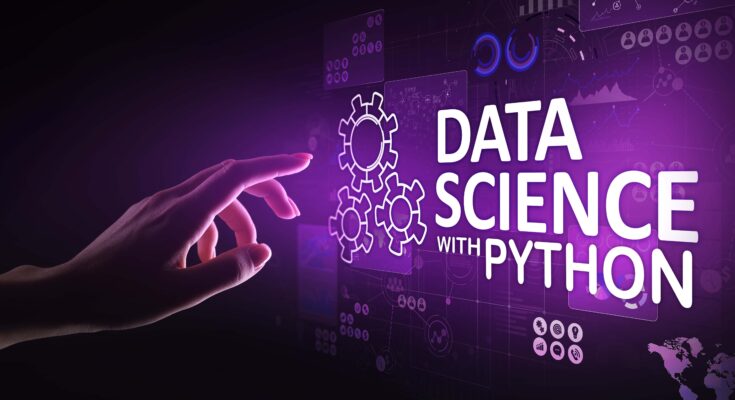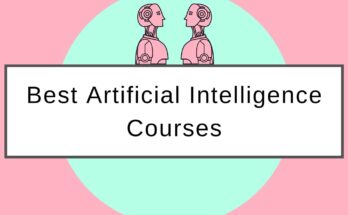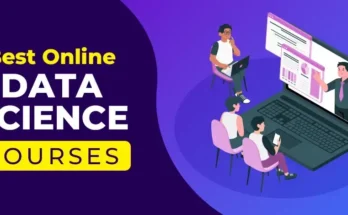Python has emerged as the most versatile and widely used programming language. Its simplicity, readability, and a rich ecosystem of libraries make it the go-to language for data scientists. If you’re looking to break into the field of data science, or if you’re already a practitioner seeking to enhance your skills, taking a Python for Data Science course can be a transformative step. In this article, we’ll explore what Python for Data Science courses entail, why they are crucial, and address some common questions through a FAQ section. By the end, you’ll have a clearer understanding of how Python can empower you in the data science world.
Why Python for Data Science?
Python’s popularity in the data science community can be attributed to several factors:
- Versatility: Python is a general-purpose programming language, meaning it can be used for various applications, not just data science. This versatility allows data scientists to tackle diverse tasks within a single framework.
- Ease of Learning: Python’s simple and clean syntax makes it an accessible language for beginners. Data science can be complex, but Python simplifies the coding aspect, allowing practitioners to focus on the data and algorithms.
- Extensive Libraries: Python boasts a robust ecosystem of libraries, such as NumPy, Pandas, Matplotlib, Seaborn, and Scikit-Learn, designed explicitly for data manipulation, analysis, and visualization. These libraries save time and effort, as they provide pre-built functions and tools for common data science tasks.
- Community and Support: Python has a large and active user community. This translates to extensive online resources, forums, and support. Data scientists can find answers to their questions and share knowledge easily.
- Data Visualization: Python offers numerous tools for data visualization, including Matplotlib, Seaborn, Plotly, and Bokeh. Effective data visualization is a crucial part of data analysis, and Python excels in this area.
- Machine Learning and AI: Python is the primary language used in machine learning and artificial intelligence applications. Libraries like TensorFlow, Keras, and PyTorch have Python as their primary interface, making it the language of choice for those interested in these fields.
- Big Data and Web Development: Python can be integrated into big data ecosystems like Hadoop and Spark. It’s also widely used for web development, which is an essential skill for data scientists working on data-driven web applications.
Python for Data Science Courses: What to Expect
Python for Data Science courses are designed to equip individuals with the knowledge and skills necessary to excel in the field of data science. These courses are offered by universities, online platforms, and various educational institutions. Here’s what you can expect from such courses:
- Fundamentals of Python: The courses typically start with a comprehensive introduction to Python programming. This includes basic syntax, data types, variables, and control structures.
- Data Manipulation with Pandas: A significant portion of data science involves data cleaning and preprocessing. Courses usually cover Pandas extensively, as it’s a powerful library for data manipulation and analysis.
- Data Visualization: You’ll learn how to create insightful data visualizations using libraries like Matplotlib and Seaborn. Effective visualization is key to conveying the results of your analysis.
- Statistical Analysis: Most data science courses include statistical analysis concepts and methods. You’ll learn how to perform descriptive statistics and hypothesis testing.
- Machine Learning: Machine learning is at the heart of data science. Courses often delve into machine learning algorithms, model training, and evaluation. You may encounter libraries like Scikit-Learn for this purpose.
- Deep Learning (Optional): Depending on the course and your interest, you may have the opportunity to explore deep learning with libraries like TensorFlow and PyTorch.
- Big Data Integration (Optional): Some courses also introduce the integration of Python with big data tools like Hadoop and Spark.
- Practical Projects: Hands-on experience is vital in data science. You’ll work on real-world projects that require you to apply the skills you’ve learned throughout the course.
- Collaborative Work: Data science often involves team collaboration. Courses may include group projects to simulate real-world working conditions.
- Career Guidance: Many courses offer guidance on job hunting, resume building, and interview preparation. They may also provide networking opportunities and connections to potential employers.
- Certification: At the end of the course, you may receive a certification, which can be a valuable addition to your resume when seeking data science positions.
FAQ: Frequently Asked Questions
Let’s address some common questions that individuals often have when considering Python for Data Science courses:
1. Do I need prior programming experience to enroll in a Python for Data Science course?
No, you don’t necessarily need prior programming experience. Python is known for its beginner-friendly nature, and many courses start with the basics. However, having some coding experience can be advantageous.
2. What is the typical duration of a Python for Data Science course?
The duration varies depending on the course and institution. Online courses can range from a few weeks to several months, while university programs may extend to a year or more. Choose a course that suits your availability and learning pace.
3. Are online Python for Data Science courses as valuable as university programs?
Online courses can be just as valuable as university programs, provided they are from reputable platforms and taught by experienced instructors. It’s important to research and choose a course that aligns with your goals and expectations.
4. Is it essential to complete a Python for Data Science course to become a data scientist?
While a formal course is beneficial, it’s not always essential. Many data scientists are self-taught or have diverse educational backgrounds. What matters most is your ability to demonstrate your skills and knowledge through practical projects and experience.
5. Do I need to have a strong mathematical background to excel in data science courses?
While a mathematical background is beneficial, it’s not always necessary. Many data science courses provide foundational knowledge in statistics and mathematics as part of their curriculum. Additionally, you can gradually build your mathematical skills as you progress in your data science journey.
6. How much time should I allocate for self-study outside of the course?
The amount of time required for self-study depends on your prior knowledge, the intensity of the course, and your learning pace. In general, expect to spend additional hours practicing and working on projects outside of the course to solidify your skills.
7. What is the average salary for a data scientist after completing a Python for Data Science course?
Salaries vary by location and experience, but data science is known for offering competitive compensation. Entry-level data scientists can expect a salary that is above the average for other professions. As you gain experience and expertise, your earning potential increases significantly.
8. Can I specialize in a particular field of data science after completing a Python for Data Science course?
Yes, you can specialize in various fields, such as machine learning, natural language processing, computer vision, or data engineering. Python’s versatility allows you to pivot into different areas of data science as your interests and career goals evolve.
Also Read: Berkeley Data Science Courses
Conclusion
Python for Data Science courses offer a structured and efficient way to gain the skills and knowledge needed to excel in the data science field. Python’s versatility, simplicity, and rich library ecosystem make it an ideal choice for aspiring data scientists. Whether you’re a beginner or a seasoned professional, these courses can help you master the art of data analysis, visualization, and machine learning.
In a data-driven world, the demand for skilled data scientists continues to grow. Python for Data Science courses provide a pathway to fulfilling this demand and embarking on a rewarding career. By investing your time and effort in such a course, you can open doors to a wide range of industries and opportunities where data science plays a pivotal role.
Remember, the journey doesn’t end with a course completion certificate. Data science is a continuously evolving field, and staying up-to-date with the latest advancements and building a portfolio of real-world projects will be key to your success. So, enroll in a Python for Data Science course, embark on your data science journey, and unlock a world of possibilities.




